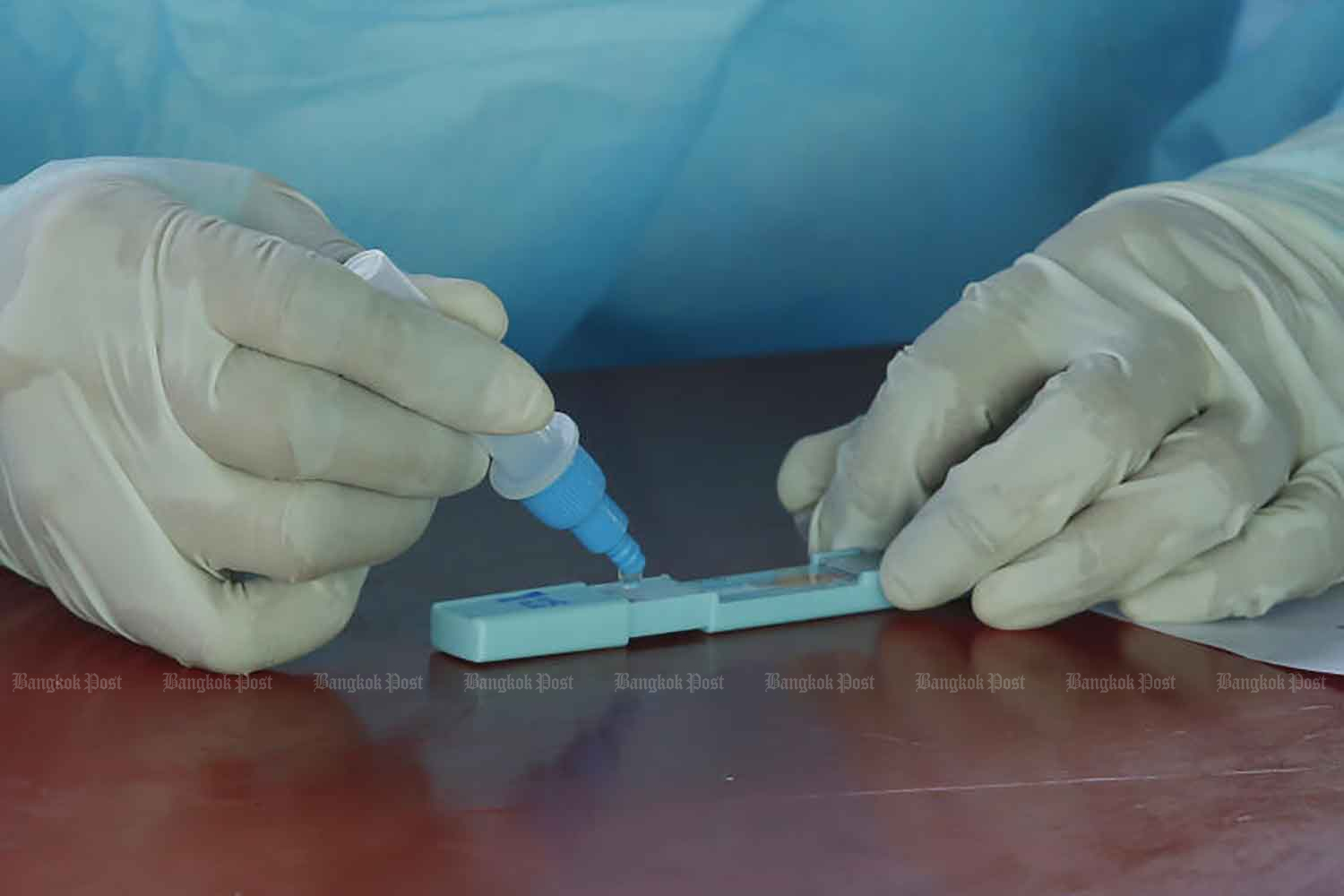
False Covid-19 reports generated from antigen test kits (ATKs) are not because of quality issues, but rather a matter of the devices' limitations, according to the Department of Medical Sciences.
ATKs are widely known for being less sensitive than the more complicated method of RT-PCR testing done in a laboratory, said Dr Supakit Sirilak, chief of the Department of Medical Sciences.
Dr Supakit said there are many factors that lead to an ATK giving the wrong result. One of the reasons is when people use it when they have the flu.
He said another factor that leads to a false result was that those who use an ATK have ignored the advice given on the box.
The department's explanation was given in response to reports of the public health chief in Nakhon Si Thammarat province ordering the suspension of ATKs there for home use, including the Lepu brand of kits because of a high level of false negatives.
The province did a test comparing Lepu ATKs to RT-PCR in 392 cases. The test found 223 negative cases from RT-PCR testing, but only 122 negative cases were detected by Lepu ATKs.
The kit has also been questioned by the Rural Doctors Society regarding its accuracy in testing for the virus that causes Covid-19.
Previously, it called on the government to stop using it but failed. The Ministry of Public Health agreed to use Lepu's ATKs with a promise to closely monitor their performance.
Dr Supakit further added that the medical science department intends to increase the number of whole-genome sequencing tests by at least 450 cases every week.
He said that the department is reporting to GISAID's database every week to help clear UK concerns about insufficient information being provided to the global virus monitoring data agency.
The department has further agreed to examine new strains that might be present in the country by conducting 372 more cases per week.
